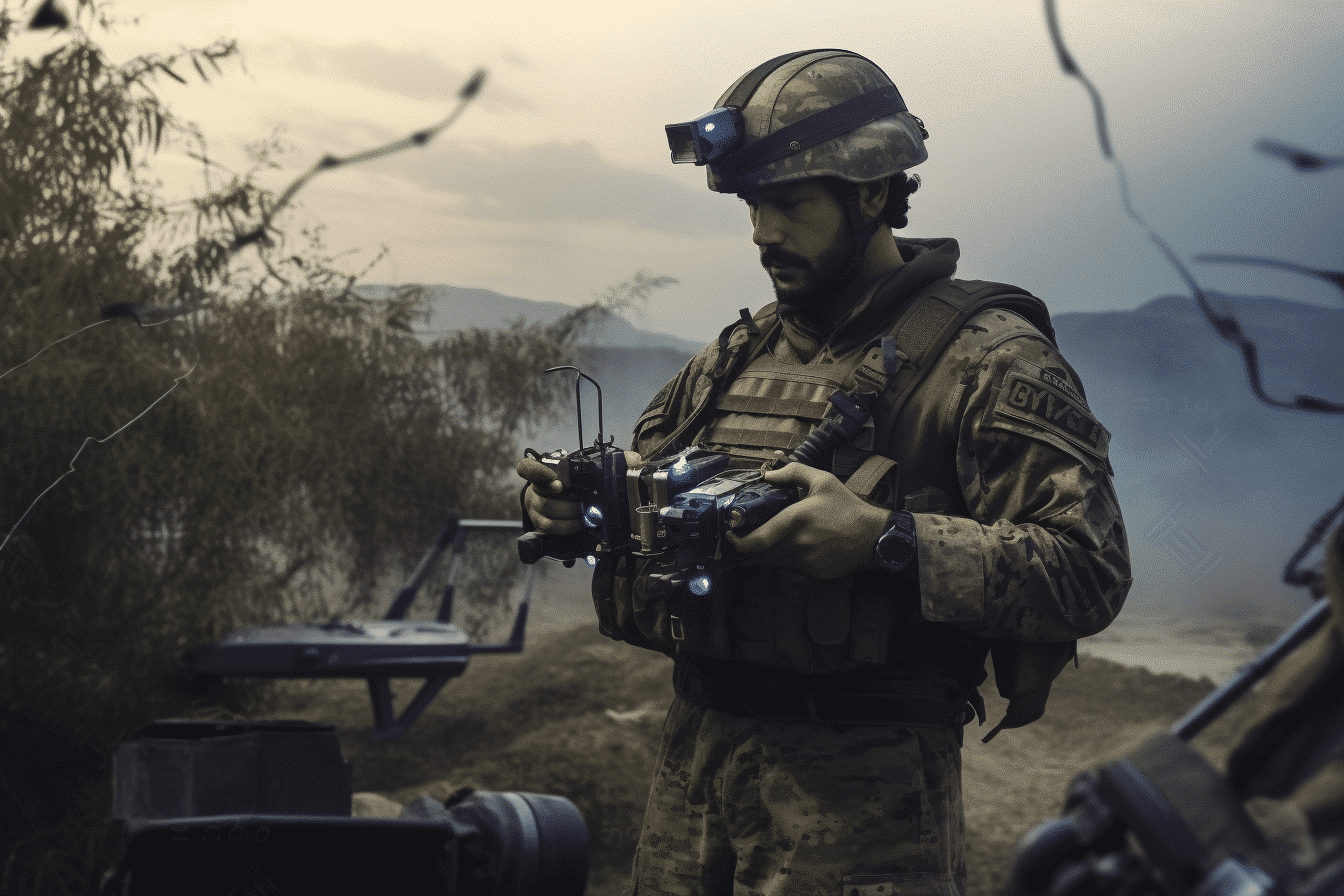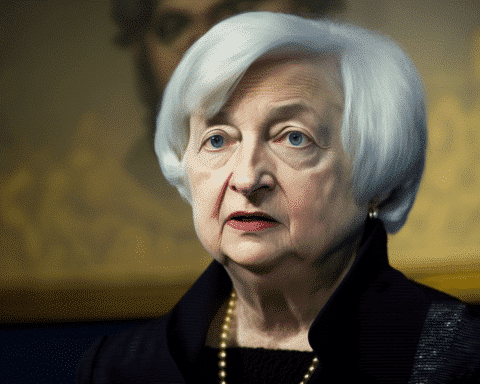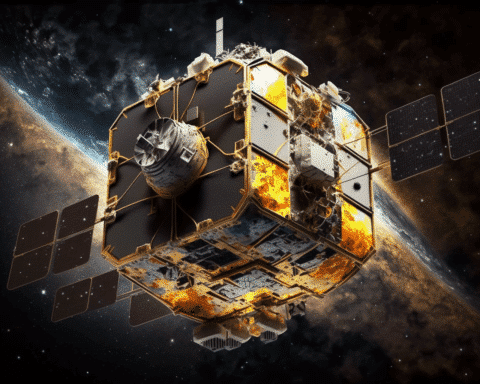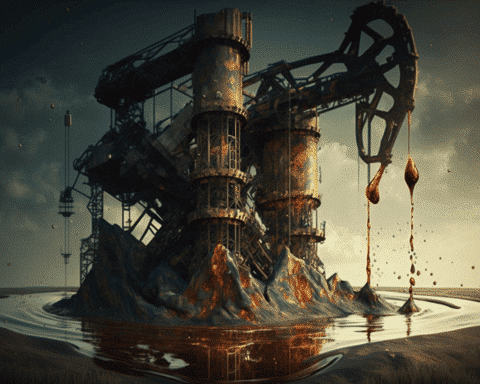Russian authorities reported that they intercepted a drone strike from Ukraine targeted at Moscow, an incident that momentarily led to the closure of one of Moscow’s international airports. Western analysts suggest that the slowing pace of Kyiv’s recent counteroffensive may be attributed to Russia’s defensive efforts.
This drone strike attempt, succeeding past similar raids on Moscow, marks the first assault on the city since the failed uprising led by mercenary leader Yevgeny Prigozhin 11 days ago. His Wagner troops’ march on Moscow constituted a significant, albeit short-lived, challenge to Russian President Vladimir Putin’s over two-decade-long reign.
Ukrainian authorities, typically reserved in commenting on attacks on Russian soil, made no statements regarding their involvement in the drone raid.
According to the Russian Defense Ministry, four of the five drones were intercepted by air defences on Moscow’s outskirts, with the fifth drone neutralized through electronic warfare and safely grounded.
Moscow Mayor Sergei Sobyanin confirmed that the drone incident resulted in no casualties or damage. However, it remains unclear whether the Russian military was successful in disabling all the drones, as was their claim.
The drone strike temporarily restricted flights at Vnukovo Airport in Moscow and diverted flights to the city’s other two primary airports. Vnukovo airport is approximately 15 kilometres southwest of Moscow.
Previously in May, Moscow witnessed two bold drone strikes, thought to be the farthest-reaching assaults by Kyiv into Russian territory.
This raid coincided with Ukraine’s ongoing investigation of Russian defences in their southern and eastern regions, marking the early phases of their counteroffensive.
Oleksiy Danilov, secretary of Ukraine’s Security and Defense Council, stated that the military’s current focus is on eliminating Russian equipment and personnel, suggesting that recent days of combat have yielded significant results. However, he provided no supporting evidence, and independent verification remains elusive.
Ukrainian forces face significant challenges, including minefields, anti-tank ditches, and extensive defensive lines, reported as deep as 20 kilometres in some areas, as they strive to dislodge Russian occupiers.
The U.K. Defense Ministry revealed that Russian forces had developed tactics to hinder Ukraine’s armoured counteroffensive operations in the southern region. Using anti-tank mines to slow down attackers has exposed them to Russian drones, helicopters, and artillery.
The assessment stated that despite Russia’s initial success in stifling Ukraine’s counteroffensive, their forces continue to struggle with overextended units and a shortage of artillery ammunition. Western analysts believe that even a successful counterattack will not lead to an immediate end to the conflict, which began with Russia’s full-scale invasion in February 2022.
In addition to defensive measures, Russia continues to launch missile and drone attacks deep into Ukrainian territory. Recent shelling of Pervomaiskyi, a city in Ukraine’s northeastern Kharkiv region, resulted in 43 civilian injuries, including 12 children, according to Kharkiv Gov. Oleh Syniehubov.
Sumy Mayor Oleksandr Lysenko reported that a drone strike on Monday led to three deaths and 21 injuries, damaging two residential buildings. The strike also hit the regional headquarters of the Security Service of Ukraine, prompting Ukrainian President Volodymyr Zelenskyy to call for enhanced air defence systems to counter Russian raids.
According to the Ukrainian presidential office, at least seven Ukrainian civilians were killed and 35 others injured during the previous 24 hours of conflict.
On a video call with the Shanghai Cooperation Organization’s leaders, Putin acknowledged the recent mercenary uprising that shook the Kremlin, thanking members for their support during the event. Putin praised the unity and responsibility shown by Russian society in the face of the attempted uprising.
Russian Defense Minister Sergei Shoigu confirmed that the loyalty of the armed forces to their oath and duty primarily led to the failed mutiny. He further asserted that the rebellion did not affect the war in Ukraine.
Meanwhile, the head of Russia’s Security Council, Dmitry Medvedev, reported no change in the number of Russian citizens signing up as professional contract soldiers in Ukraine. He announced that approximately 10,000 recruits joined in the past week, with 185,000 joining the Russian army as professional soldiers since the beginning of the year.
Contrastingly, Prigozhin claimed that his “march of justice” towards Moscow had public backing.
In recent developments, the Parliamentary Assembly of the Organization for Security and Cooperation in Europe passed a resolution recognizing Russia as a state sponsor of terrorism and categorizing the Wagner private mercenary group as a terrorist organization. The solution also encouraged member states to take action against the Wagner Group and similar organizations.
Meanwhile, Russia’s Foreign Ministry declared that it sees “no grounds” to extend an existing deal allowing Ukraine to export grain through the Black Sea, an agreement set to expire in less than two weeks.
In conclusion, as the conflict between Russia and Ukraine continues, the impacts are being felt domestically and globally. This protracted conflict, marked by regular drone strikes and the disruption of air traffic, threatens the stability of the two nations and the international order. The recent failed uprising and international recognition of the Wagner Group as a terrorist organization further complicate the situation. As the world watches closely, a resolution to this geopolitical crisis is urgently needed, yet appears elusive.




